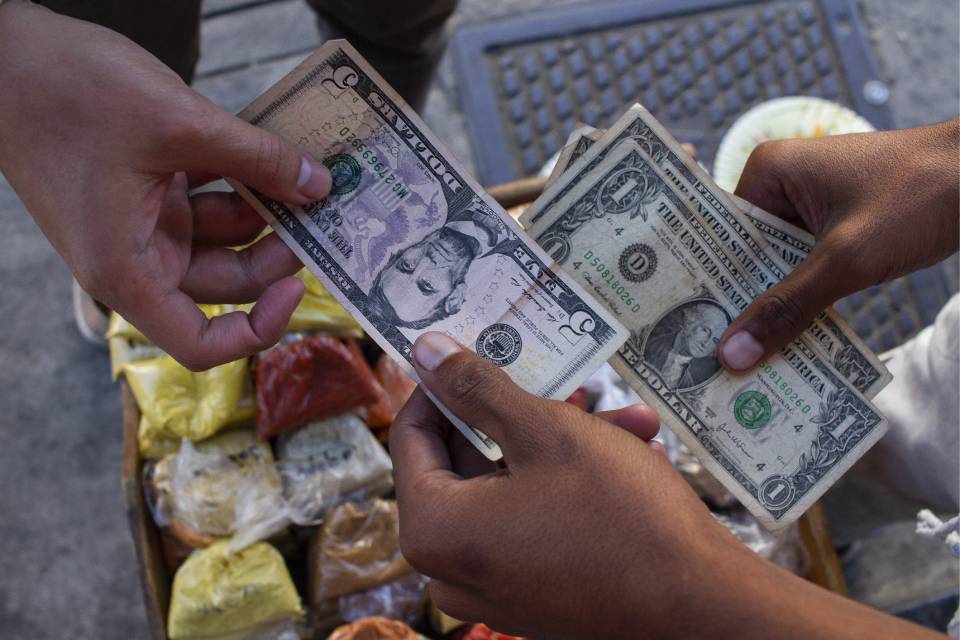The decline in consumption in the Venezuelan economy has forced companies to reduce the frequency and magnitude of their price increases in order to increase sales, which has led to lower inflation in dollars than last year
The variation of prices marked in dollars in the Venezuelan economy could reach 25% by the end of 2023, according to estimates by the Ecoanalítica consultancy.
This was revealed by Jesús Palacios, a senior economist at Ecoanalítica, during an interview with Circuit Hitsclarifying that it would represent half of the inflation in dollars registered in 2022.
“Dollar inflation will probably close around 20% or 25%. Last year, it had closed at around 52%, so it could be half or even less », he stated.
The also professor of Environmental Analysis at the Andrés Bello Catholic University (UCAB) explained that this decrease in the inflation rate in dollars could be related to a decrease in consumption experienced this year.
“That happens because, if they do not demand goods, how are the businesses going to adjust their goods upwards? But they have a ceiling, because they cannot continue adjusting and that people do not buy, “he warned.
*Read also: Inflation in dollars and the fall of the economy: Has Venezuela gone haywire?
In other words, the commercial sector has tried to adapt to the purchasing power of the population, which has been reduced in 2023. However, constantly reducing prices or promoting offers to increase sales has a limit at which it is no longer sustainable, especially if, even with stable or lower prices, consumption does not recover.
A possible solution, in the eyes of Palacios, is for the government to improve its ability to generate income via tax, a strategy that the administration of Nicolás Maduro has applied in recent months by increasing the tax burden.
“Hopefully, with these campaigns that the Government has promoted to obtain more income, it will generate higher tax revenues and have a better capacity to stabilize the exchange rate. That could have an impact on a second semester with better consumption », he stressed.
With more money in the economy via tax collection, they can inject foreign currency into the economy in order to stabilize the exchange rate, a fundamental factor to recover consumption because a significant percentage of Venezuelans generate income in bolivars and suffer the consequences of the devaluation of the national currency in an economy that fixes its prices in dollars.
«The rise in the exchange rate continues to impact purchasing power, because we estimate that 58% of people still earn in bolivars. Many do not have their salary set at the exchange rate, as is the case with almost the entire public sector and a minority, but important part – around 35% – from the private sector,” he said.
* Also read: What is it and why does the so-called “dollar inflation” exist?
Oversaturation of the offer
The Venezuelan economy experienced a slowdown in its growth in the first half of 2023, especially in the commercial sector, which was the one that was promoted last year.
Palacios reasoned that many companies expected the economy to maintain its behavior last year and projected their expectations and objectives based on that performance, finding a ceiling due to the drop in consumption due to a loss of purchasing power of the population.
He specifically referred to the phenomenon of opening restaurants, a sector that faced an oversaturation of offers aimed at a very small market, for which a significant percentage of these investments failed to be fruitful.
“There was an oversaturation. More than 200 restaurants opened last year, aiming for a target that includes 5% or 7% of the population. It was thought to be a no-loss business, but aiming for a target very small, without a quality offer or being very expensive, you can be left out of the market”, he expanded.
*Also read: “Venezuela Premium” businesses in crisis after ignoring 93% of the population
He emphasized that the base of the pyramid —that sector of the majority population that generates the least income— does not have the purchasing power to participate in the boom that emerged last year, which explained why consumption slowed down.
«When the base of the pyramid does not have purchasing power, the top is affected because the level of consumption drops, companies do not bill the same and do not meet their expectations. Although there are companies that overcome this situation, the bulk of them are going through a difficult situation that they did not expect last year, “he pointed out.
Post Views: 102







